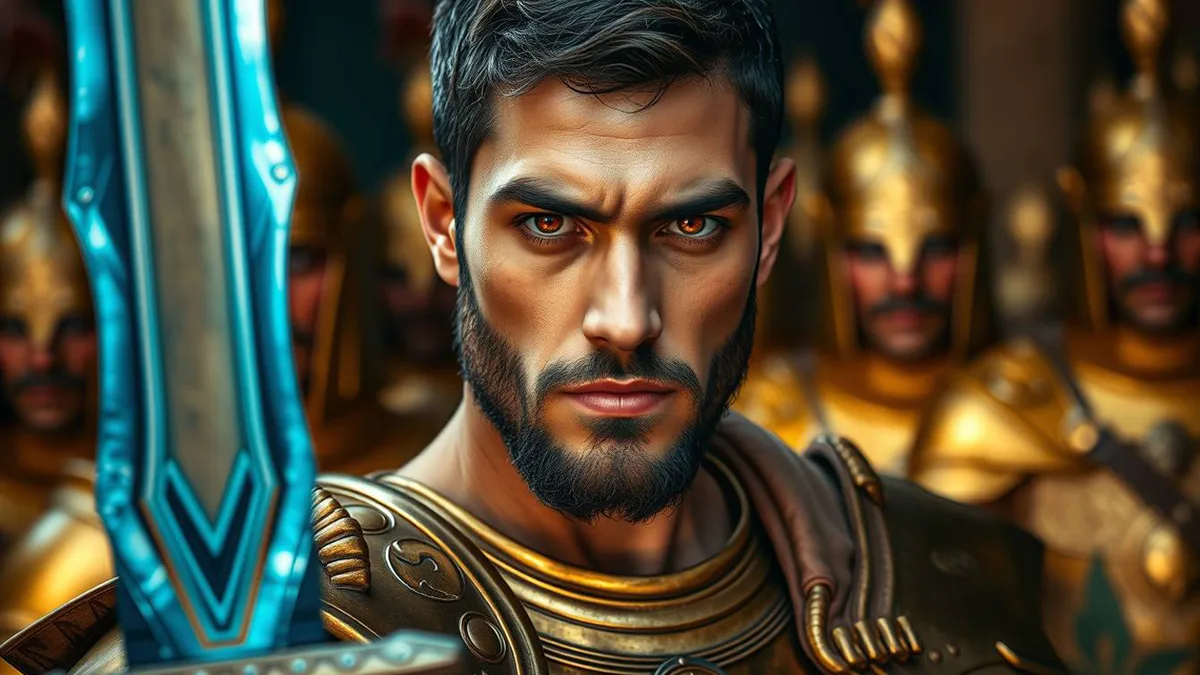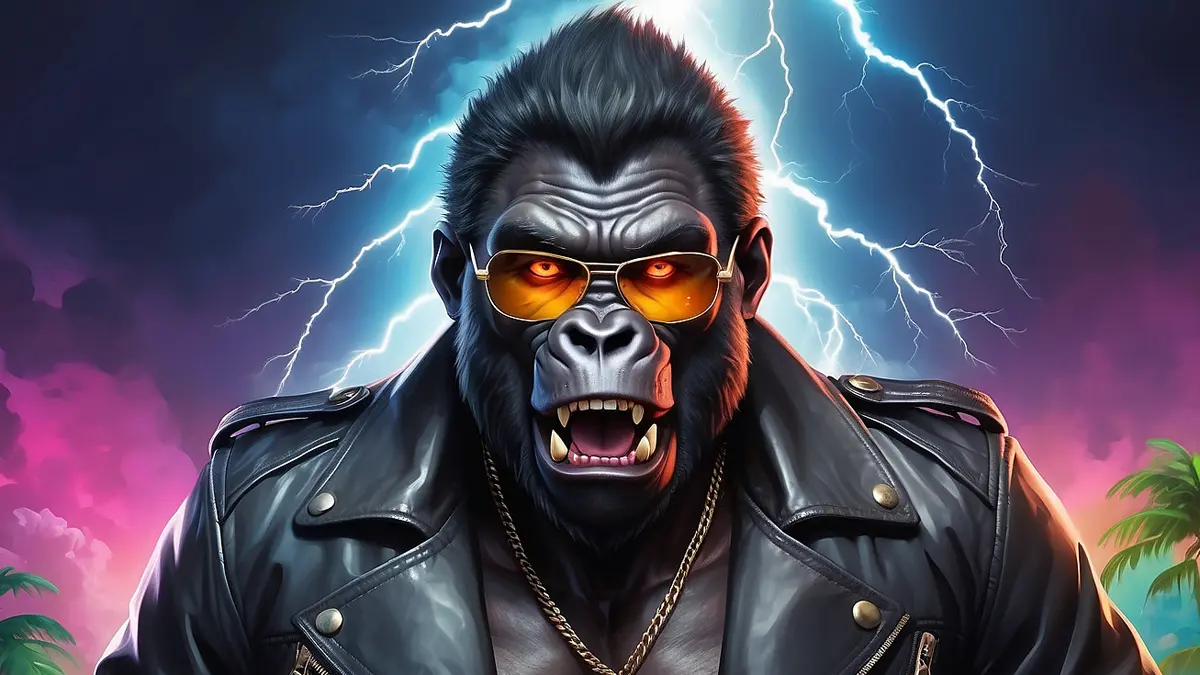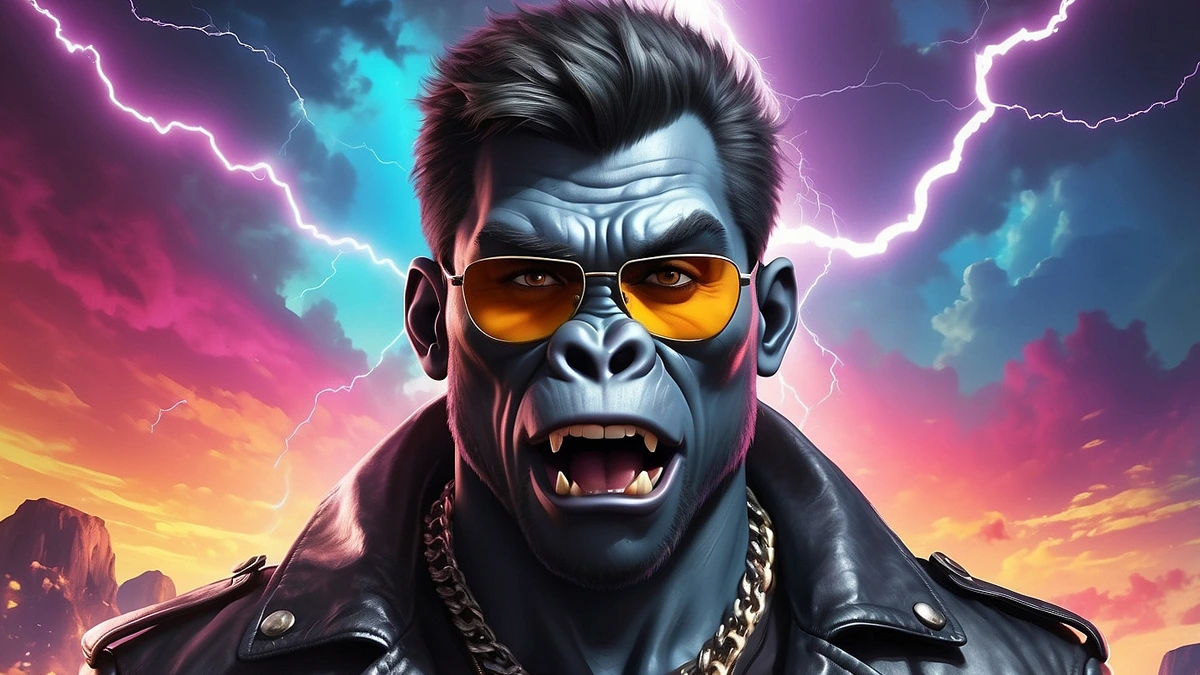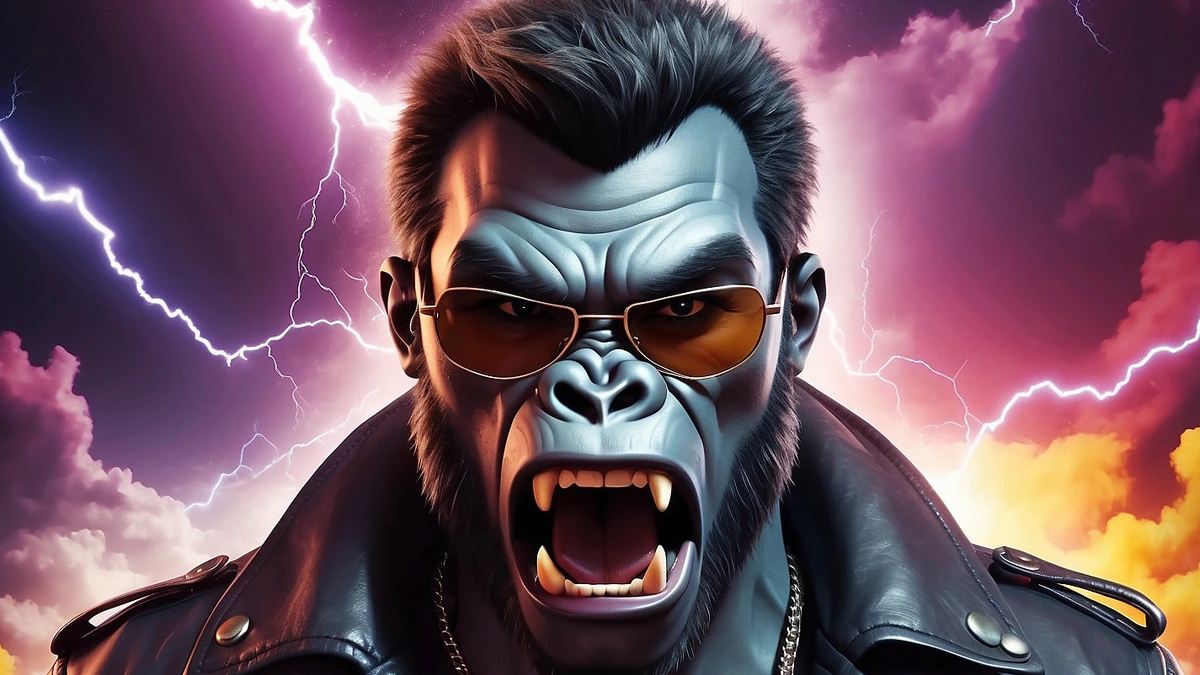Chapter 15 of Ira: The Age Of Darkness is a masterful exploration of emotional growth, internal conflict, and the complexity of power. Titled “The Warmth of Cold Fire,” it chronicles the aftermath of Babylon’s salvation and follows Ira as he navigates life not as a conqueror but as a man burdened with divine power. In this 3000-word blog, we delve deep into Ira’s psychological journey, his emerging compassion, his bond with the magical artifacts that define him, and the evolving nature of his relationship to the people he’s sworn to protect.
Babylon Reborn
Babylon, freshly rebuilt from the ashes of war, hums with life again. Merchants shout across the markets, children run through alleys, and the scent of bread fills the air. On the surface, it’s a picture of recovery. But beneath the facade lingers unease, the kind that settles after trauma. And above it all, standing on the high walls, is Ira—the cold flame of Babylon, watching the horizon with silent resolve.
The early chapters focused on Ira’s awakening and violent rise. Here, we see a man who no longer fights simply to destroy but to preserve. The same wind that once chilled him now feels familiar. The cold is no longer a torment but a companion. This is a clear metaphor for trauma becoming part of one’s identity—not gone, but integrated.
The Birth of Empathy
One of the most profound developments in this chapter is Ira’s gradual rediscovery of empathy. Known as a fearsome and distant figure, he begins to connect with the people of Babylon not through grand gestures, but through simple human acts.
He visits an elderly woman at the city’s edge who lost her sons in war. He brings her bread and blankets. He listens. In doing so, he doesn’t just comfort her; he begins to heal himself. Likewise, his interactions with children—teaching them games, helping them craft toys—reconnect him with innocence.
These quiet moments serve as a counterpoint to the spectacle of war in previous chapters. Here, we witness how compassion doesn’t dull power, but gives it meaning. The warmth of cold fire is not an oxymoron but a fusion: controlled strength guided by heart.
Mastery and Precision: The Evolution of the Blade
The BlazeFrost Celestial Sword has been a recurring symbol of Ira’s icy vengeance. But in Chapter 15, it becomes more than a weapon—it becomes an extension of his soul. Earlier, it lashed out indiscriminately. Now, its frost flows in harmony with Ira’s intent, targeting threats while sparing the innocent.
This transition from chaos to control marks Ira’s evolution. He doesn’t merely wield power—he understands it. The sword, once feared by all, now represents protection to the citizens. It freezes not as a force of death, but as a shield. Cold becomes safety.
In training, Ira moves like a dancer. The frost around him coils with grace, his strikes measured and precise. This mastery is more than martial; it’s spiritual. He has become not just a warrior, but a steward of his power. And like any good steward, he knows power is a responsibility, not a right.
The Whispering Doubt
Yet for all this growth, Ira is haunted by a voice—a whisper in the night that speaks of destiny and justice. The voice speaks of the BlazeFrost Celestial Sword and the Black Iron Horse as tools of divine purpose. But Ira, more self-aware now, begins to question this narrative.
He asks, “Why me?” And in doing so, opens a Pandora’s box of existential uncertainty. What is justice? Who decides its definition? Is he a chosen hero or merely a tool in someone else’s war?
This internal questioning anchors the chapter in philosophical depth. Power, when unexamined, is tyranny. But power burdened with introspection becomes something else—potentially noble, potentially tragic.
The reader begins to understand that Ira’s greatest battle isn’t against enemies, but against the seduction of absolute certainty. The cold that once stiffened his limbs now stiffens his sense of identity. And that, more than any sword fight, becomes the drama of the chapter.
Symbolism: The Sword and the Horse
The BlazeFrost Celestial Sword and the Black Iron Horse aren’t mere props. They are manifestations of Ira’s dual nature. The sword, beautiful yet lethal, becomes a symbol of his control over chaos. The horse, silent and powerful, represents loyalty, mystery, and silent endurance.
Together, they form a triad: man, weapon, and steed. All three carry the same power, the same burden, and the same uncertainty. The horse, especially, begins to mirror Ira’s psyche—a majestic being of shadow and frost, powerful yet patient.
The chapter uses these symbols not just for aesthetic, but to deepen Ira’s philosophical musings. The power he possesses is not his alone. It comes from somewhere—someone—and the purpose behind it is still unclear.
The Nature of Power
Ira unsheathes the sword and studies it beneath the moonlight. He sees the intricate patterns etched into its cold metal and wonders: Who made this? Why? The sword kills with elegance, freezes with a whisper, but also guards, shields, and purifies. It’s not inherently evil or good. It reflects its wielder.
This moment draws attention to a recurring theme: power is neutral. It is the hand behind it that gives it moral weight. Ira now realizes he can no longer swing the sword in anger alone. The blade demands clarity, and clarity requires contemplation.
He worries that justice, spoken of so freely by the voice in his head, might be an illusion. What if he’s wrong? What if his cold mercy has simply frozen nuance into false binaries?
A Question of Origin
Though not fully explored, the question of the sword’s origin adds intrigue. Where did this power come from? Was Ira born with it, or was he selected, perhaps even manipulated? And if so, what does that mean for his agency?
The reader is left to consider that Ira’s past may be as constructed as the power he now wields. His identity, once so rooted in survival and vengeance, now stretches into mythic territory. He is no longer just Ira. He is a symbol, a legend, and legends often lack the freedom of ordinary men.
The Burden of Leadership
Appointed to command the city’s defenses, Ira takes his place not as a figurehead, but as a deeply reluctant guardian. He does not crave leadership. He does not relish command. But he accepts it.
This reluctant acceptance reinforces a key idea: true leadership is not about dominance but duty. Ira’s empathy, his restraint, and his constant self-questioning make him uniquely suited to hold power responsibly. And yet, it also isolates him. The more he becomes a symbol, the less he feels like a man.
Justice and its Discontents
Justice, once a clear rallying cry, becomes blurred. The voice in Ira’s head repeats the word like a mantra, but Ira sees the complications. What does it mean to be just when the sword cuts through nuance? When the horse tramples ambiguity?
He realizes that true justice may lie in restraint, in listening, in mercy. That wielding power may mean choosing not to use it. And in that moment, Ira’s cold flame becomes something warmer, something wiser.
The Final Scene: Dawn and Reflection
The chapter ends at dawn. Ira stands at the edge of the city, facing the empty steppe. The storm has passed. The sword is sheathed. The Black Iron Horse waits quietly. The voice in his head still whispers, but its power is diminished.
He doesn’t have the answers. He may never have them. But he understands the stakes. He is not a god, nor a tyrant, nor even a traditional hero. He is a man given immense power in a broken world. And in a broken world, the greatest strength is to remain human.
He turns back toward Babylon, not as a conqueror, but as its reluctant, frost-bound protector. The warmth of cold fire guides his steps.
Conclusion: A Chapter of Maturity and Mystery
Chapter 15 is a turning point. It trades spectacle for introspection, fury for wisdom. Ira is no longer the man we met in earlier chapters. He is evolving, transforming into a protector who understands the fragility of peace and the burden of power.
The “warmth of cold fire” becomes more than a poetic phrase. It encapsulates Ira’s new philosophy: power without purpose is destruction; purpose without compassion is tyranny. Only when the two merge can something good emerge from devastation.
As a standalone chapter, it deepens the novel’s mythos, explores timeless questions of justice and destiny, and sets the stage for the conflicts to come. But more importantly, it invites the reader to look inward—to consider what it means to wield power in their own life, and how they, like Ira, might balance fire with frost.
This is Ira: The Age Of Darkness at its most thoughtful. And Ira, now more than ever, is a hero worth following.




